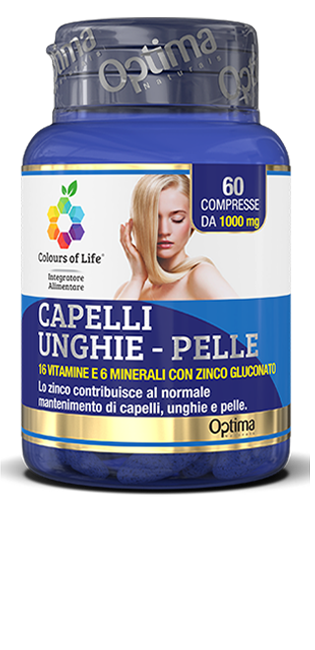BLOG
Prevent nutritional deficiencies for strong, healthy hair

Strong, healthy and shiny hair does not only mean beauty. Many people consider healthy-looking hair a sign of good health. When we are unhealthy, our hair is brittle and dry, it breaks and can even fall out. Similarly, nails and skin are often affected by our general state of health.
Hair also needs nutrients
Like any other part of our body, hair needs a variety of nutrients to be healthy and grow. Nutritional deficiencies can lead to loss of shine, brittleness and hair loss. Although healthy hair growth is influenced by factors such as age, genetics and hormones, optimal nutrient intake is crucial.
The importance of a healthy diet for strong, shiny hair
If you want to look after your hair, the first thing to do is to eat a healthy, varied diet rich in vitamins and minerals. This means favouring seasonal vegetables, both raw and cooked, dried fruit and oil seeds, whole grains and quality protein foods.
It is necessary to reduce the consumption of ready-made, packaged and preserved foods, which often contain additives and preservatives that reduce the intake of micronutrients useful for the good functioning of our organism, including the good health of our hair.
Food supplements for hair, an extra help
While food is the best source of vitamins and minerals needed for hair growth, there are times when you may not be getting enough, or when other factors, such as stress, may make a different action necessary. In this case, food supplements can be a useful aid.
There are a number of vitamins, minerals and other substances that can promote activity and natural cell turnover. These include vitamin A, vitamin C, B vitamins, coenzyme Q10, choline, and minerals such as iron, magnesium and zinc. These macronutrients also affect the metabolism of hair, nail and skin cells and can help to visibly improve our appearance.
Cautions
It is important to remember that excessive doses of vitamins and minerals can be harmful if you are not deficient. This is why it is always useful to consult a doctor, especially if you have a medical condition, and to avoid DIY.
Article written in collaboration with BenessereCorpoMente.it
Sources and insights
PMC, Diet and hair loss: effects of nutrient deficiency and supplement use
PubMed, Nutrition of women with hair loss problem during the period of menopause
PubMed, Healthy hair: what is it?
The advice is for information only and should not replace medical assistance. Please consult a doctor or health care professional before trying any remedies.
HAIR, NAILS, SKIN









 Optima Naturals S.r.l. ® Via Sempione 124, 21029 Vergiate (VA)
Optima Naturals S.r.l. ® Via Sempione 124, 21029 Vergiate (VA)